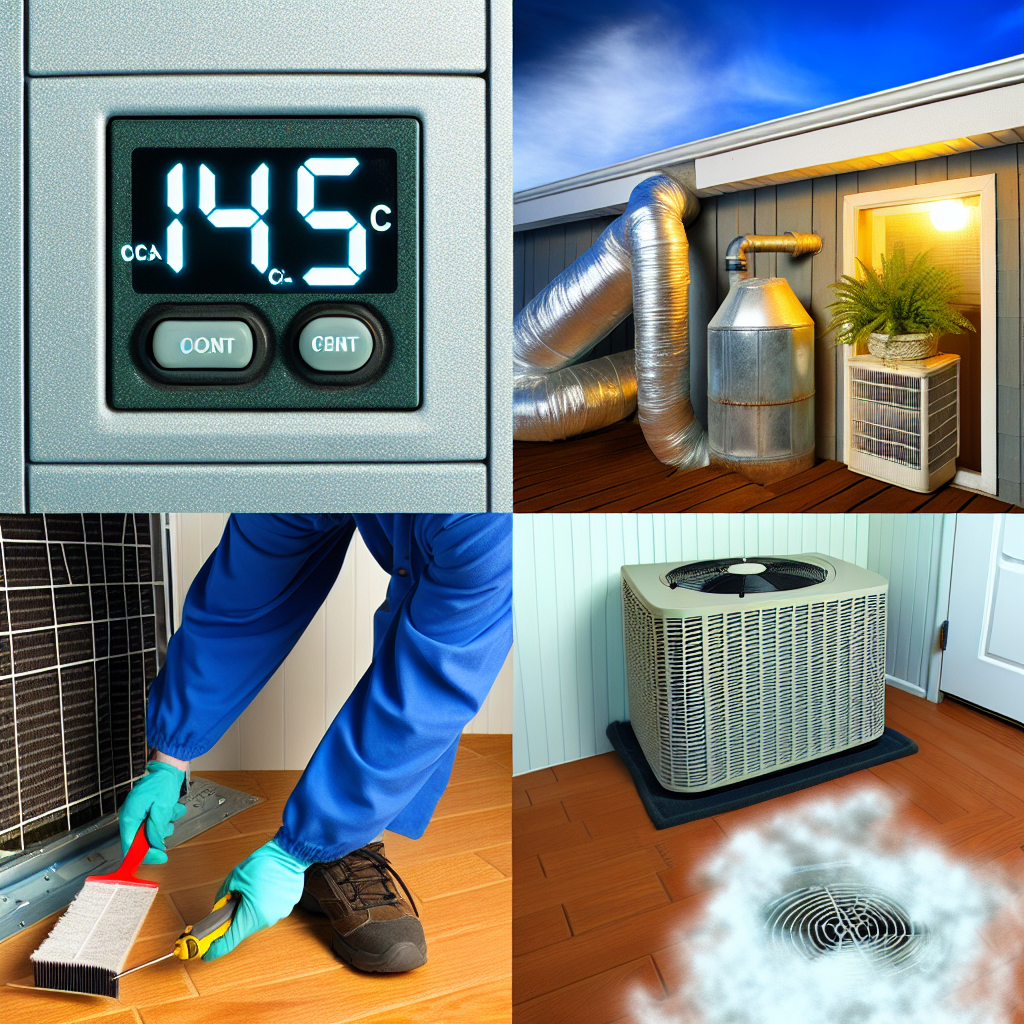Published: Feb 05, 2025

Heating, ventilation, and air conditioning (HVAC) systems are essential for maintaining a comfortable indoor environment throughout the year. However, there are several common myths surrounding HVAC systems that can lead to misunderstandings and potentially costly mistakes. In this blog post, we will debunk some of the most prevalent myths about HVAC systems to help you better understand how to care for and utilize your system effectively.
One common misconception is that closing vents in rooms that are not in use can help save energy and improve efficiency. However, this practice can actually disrupt the airflow balance within your HVAC system, leading to increased pressure and potentially causing damage to the system. It is more effective to maintain consistent airflow throughout your home to ensure proper functioning of your HVAC system.
Some believe that bigger is always better when it comes to HVAC systems. However, installing an oversized unit can actually lead to inefficient operation, higher energy bills, and inadequate humidity control. It is essential to have a properly sized HVAC system that is suited to the specific cooling and heating needs of your home. An HVAC professional can conduct a load calculation to determine the right size for your space.
Another common myth is that HVAC systems do not require regular maintenance. In reality, routine maintenance is crucial for ensuring the optimal performance and longevity of your system. Neglecting maintenance tasks such as filter replacement, duct cleaning, and system inspections can result in reduced efficiency, poor indoor air quality, and costly repairs down the line. Scheduling annual maintenance with a qualified technician is key to keeping your HVAC system running smoothly.
Many people believe that setting the thermostat to the lowest temperature in summer or the highest in winter will cool or heat the home more quickly. In truth, HVAC systems operate at a consistent pace regardless of the temperature setting. Setting extreme temperatures only makes the HVAC system work longer, leading to higher energy consumption and potential wear and tear on the components. It is best to set the thermostat to a comfortable temperature for efficient and effective heating or cooling.
Not all air filters are created equal, and using the wrong type of filter can have negative consequences for your HVAC system. Some homeowners opt for cheap, low-quality filters that fail to effectively capture dust, pollen, and other particles, leading to poor indoor air quality and potential damage to the system. Investing in high-quality air filters with a MERV (Minimum Efficiency Reporting Value) rating appropriate for your system can help maintain clean air and prolong the life of your HVAC equipment.
While duct tape may seem like a quick fix for sealing leaks in HVAC ductwork, it is not the most effective or long-lasting solution. Over time, duct tape can deteriorate and lose its adhesive properties, causing leaks to reappear and reducing the efficiency of your system. Professional duct sealing using mastic or metal tape is a more reliable method for addressing leaks and improving the performance of your HVAC system.
Closing doors and vents in unused rooms is a common strategy believed to reduce energy consumption and save money. However, this practice can disrupt the airflow balance in your HVAC system, leading to pressure imbalances that may strain the system. It is more beneficial to ensure proper airflow throughout your home by keeping doors open and maintaining a consistent temperature, allowing your HVAC system to operate efficiently.
The placement of your thermostat plays a significant role in the performance of your HVAC system. Placing the thermostat near sources of heat or cold, such as windows, appliances, or direct sunlight, can result in inaccurate temperature readings and inefficient operation. To ensure precise temperature control and energy efficiency, position your thermostat away from these influencing factors in a central location within your home.
By debunking these common myths about HVAC systems, you can make informed decisions regarding the care and operation of your system. Remember that proper maintenance, sizing, and usage are essential for maximizing the efficiency, performance, and longevity of your HVAC system. If you have any concerns or questions about your HVAC system, consult with a professional technician to address your specific needs and ensure optimal functionality for years to come.
Thank you for reading our blog post on debunking common myths about HVAC systems. Remember, understanding the truth about your HVAC system can help you save energy, money, and ensure a comfortable indoor environment for you and your family!

Our expert technicians are ready to assist you 24/7!
Contact Us Today!Read our latest articles for helpful information about heating, cooling, and air quality.
Regular HVAC maintenance is crucial for keeping your system running smoothly, avoiding costly repairs, and improving ene...
Read MoreUpgrading to energy-efficient HVAC systems through measures like programmable thermostats, duct sealing, high-efficienc...
Read MoreImplementing strategies such as regular cleaning, humidity control, ventilation, air purification, and allergen prevent...
Read MoreInstalling a smart thermostat in your home can enhance comfort, optimize energy efficiency, and provide long-term cost s...
Read More